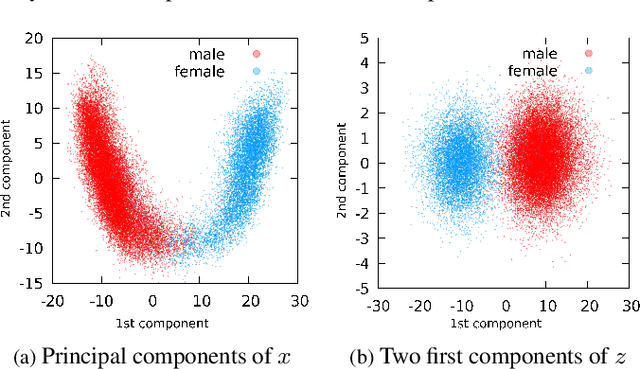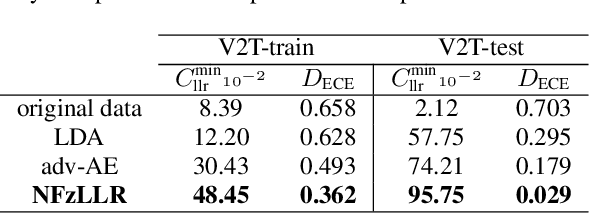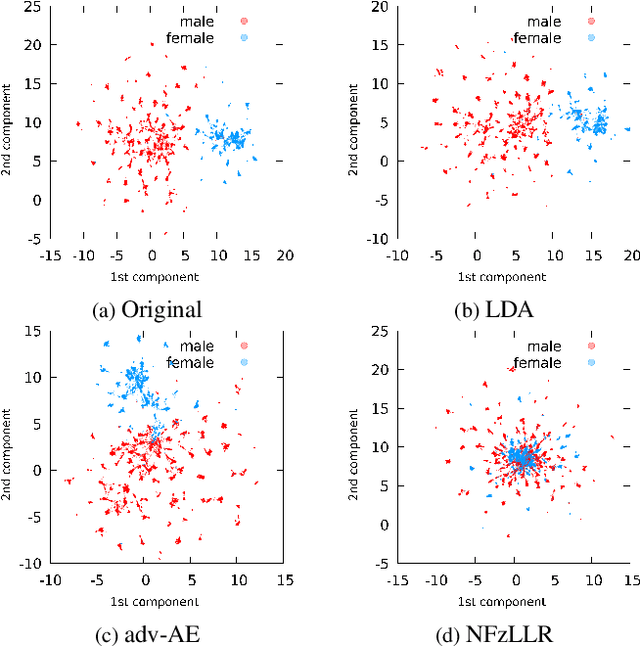A bridge between features and evidence for binary attribute-driven perfect privacy
Paper and Code
Oct 12, 2021



Attribute-driven privacy aims to conceal a single user's attribute, contrary to anonymisation that tries to hide the full identity of the user in some data. When the attribute to protect from malicious inferences is binary, perfect privacy requires the log-likelihood-ratio to be zero resulting in no strength-of-evidence. This work presents an approach based on normalizing flow that maps a feature vector into a latent space where the strength-of-evidence, related to the binary attribute, and an independent residual are disentangled. It can be seen as a non-linear discriminant analysis where the mapping is invertible allowing generation by mapping the latent variable back to the original space. This framework allows to manipulate the log-likelihood-ratio of the data and thus to set it to zero for privacy. We show the applicability of the approach on an attribute-driven privacy task where the sex information is removed from speaker embeddings. Results on VoxCeleb2 dataset show the efficiency of the method that outperforms in terms of privacy and utility our previous experiments based on adversarial disentanglement.
 Add to Chrome
Add to Chrome Add to Firefox
Add to Firefox Add to Edge
Add to Edge